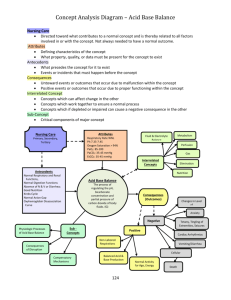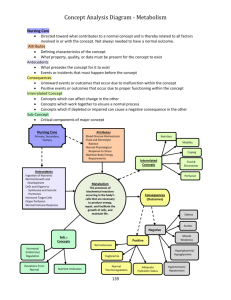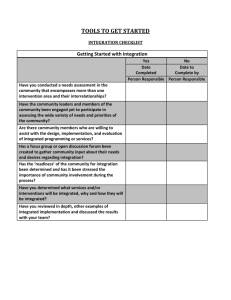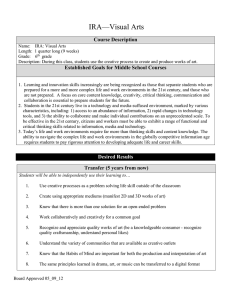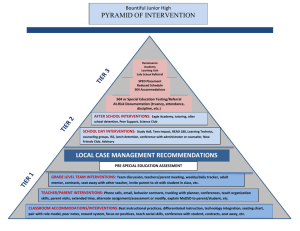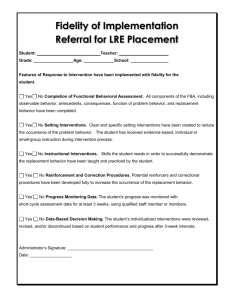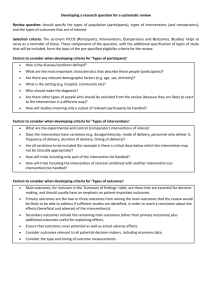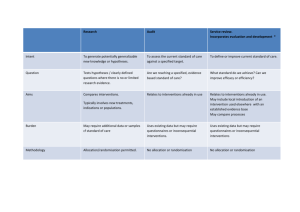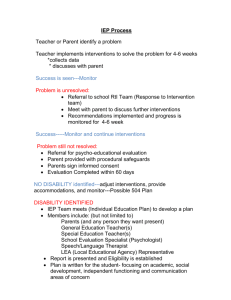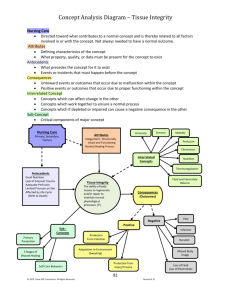Patient Concept Care Map Template
advertisement
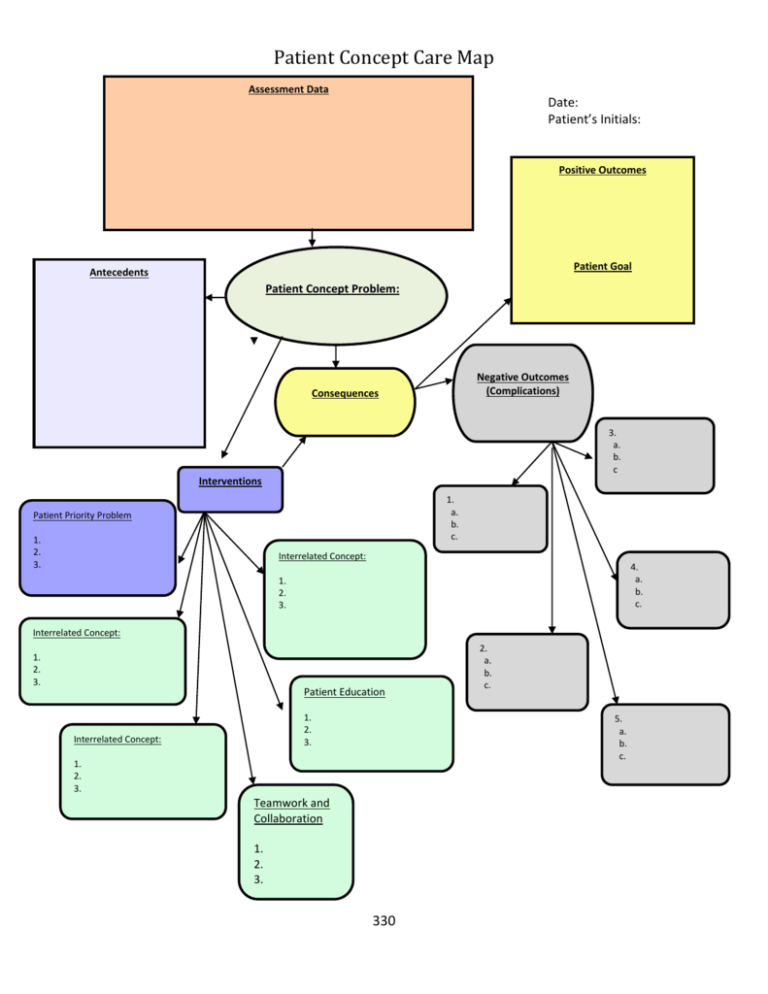
Patient Concept Care Map Assessment Data Date: Patient’s Initials: Positive Outcomes Patient Goal Antecedents Patient Concept Problem: Negative Outcomes (Complications) Consequences 3. a. b. c Interventions 1. a. b. c. Patient Priority Problem 1. 2. 3. Interrelated Concept: 4. a. b. c. 1. 2. 3. Interrelated Concept: 1. 2. 3. Patient Education 1. 2. 3. Interrelated Concept: 2. a. b. c. 5. a. b. c. 1. 2. 3. Teamwork and Collaboration 1. 2. 3. 330 Patient Concept Care Map Patient Concept Care Map Instructions: 1. Put the patient’s priority concept problem in the oval in the middle. 2. Add assessment data that supports the patient concept problem in the assessment data box. Be sure to include subjective data, objective data, and diagnostic exams (including labs). 3. Add antecedents that support the patient concept problem in the antecedent’s box. Be sure to include health history and risk factors. 4. Add the positive consequences in the yellow box. Develop a patient goal that is measureable and reflects a positive outcome. 5. Add interventions specifically for the patient priority problem in the blue box. 6. Add interrelated concepts in the green boxes. Add corresponding applicable interventions. 7. Under the interrelated concept: Patient Education, add applicable patient teaching interventions. 8. Under the interrelated concept: Teamwork & Collaboration, add appropriate referrals. 9. Add complications to watch for in the gray boxes under negative outcomes. For each complication add interventions. Include clinical manifestations to watch for. Add when the HCP should be notified. Add any interventions that should be done before notifying the HCP. 331
